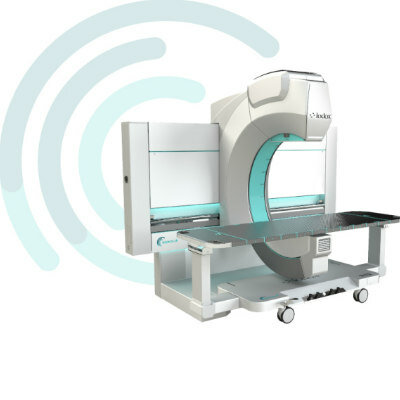Hypnosis Study Using fMRI Reveals Brain's "Amnesia Centers”
By MedImaging staff writers
Posted on 28 Jan 2008
Brain scans of hypnotized individuals that are taken as they forget and are triggered to remember have revealed neural circuitry that is vital to the memory suppression and recall process. The researchers who conducted the study reported that their insights into the memory suppression and recall process may provide clues into the mechanisms underlying amnesia.Posted on 28 Jan 2008
In their study, the researchers, from the Weizmann Institute of Science (Rehovot, Israel), identified two groups of volunteers--those who were susceptible to hypnotic suggestions and those who were not. They showed both groups a documentary illustrating a day in the life of a young woman. One week later, they placed them in a magnetic resonance imaging (MRI) scanner and induced them into a hypnotic state. In this state, the scientists gave the study volunteers a posthypnotic suggestion to forget the movie, also giving them a reversibility cue that would restore the memory.
Once the participants had been brought out of the hypnotic state, the researchers tested their recall of the movie, then gave them the reversibility cue and tested their recall again. As expected, the hypnosis-susceptible group showed reduced recall of the movie, compared with the hypnosis-nonsusceptible group.
Analysis of functional MRI (fMRI) brain scans taken during posthypnotic amnesia and memory recovery revealed distinctive activity differences between the hypnosis-susceptible group and -nonsusceptible group in specific occipital, temporal, and prefrontal regions of the brain. The researchers also identified characteristic brain activity changes in the hypnosis-susceptible group as they forgot and recalled memory of the movie. In that group, activity in some brain regions was suppressed during memory suppression, while activity in other regions increased. Moreover, during reversal of the posthypnotic suggestion, the susceptible group demonstrated recovery of activity in suppressed regions.
"The paralleled recovery of brain activity and memory performance strongly suggests that suppression was exerted at early stages of the retrieval process, thus preventing the activation of regions that are crucial for productive retrieval,” wrote the researchers, who published their findings in the January 10, 2008, issue of the journal Neuron. They reported that their findings suggest that the amnesia induced by the posthypnotic suggestion "affects an executive preretrieval monitoring process, which produces an early decision on whether to proceed or not on retrieval, and in case of a [question about the movie], aborts the process.”
The researchers stated that additional research would be needed to determine whether their findings apply to cases of functional amnesia seen in the clinic. However, they reported that some forms of amnesia might be a result of the "preretrieval memory abort” process their findings revealed. Thus, hypnosis may at least partially replicate such forms of amnesia, according to the researchers.
"All in all, our data identify brain circuits that subserve suppression of retrieval of long-term memory of a real life-like extended episode in the course of posthypnotic ‘forget' suggestion,” the investigators concluded. "Some of these regions are likely to play a role in normal retrieval. Others are likely to be engaged in dysfunctions that involve an executive decision to abort subsequent retrieval.”
Related Links:
Weizmann Institute of Science














